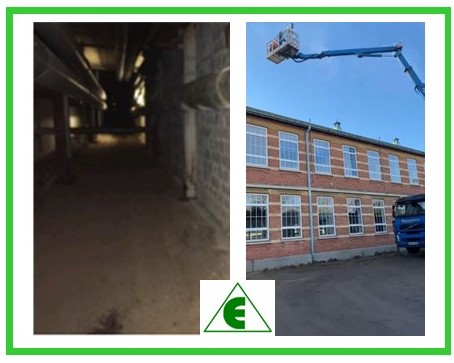What is analysis in the Built Environment:
We offer a variety of analyses for the Built Environment where sensitivity is required in understanding the composition and nature of various substances.
For example, lead, arsenic and other metals in paint, anthrax or gypsum in plaster, mould and more.
Why test:
Many substances in the built environment can cause serious harm if they are disturbed and you are exposed to them. For example:
Lead in paint if breathed in or ingested can lead to changes in your blood and have effects on your nervous system and kidneys.
Anthrax is a potentially fatal infection caused by Bacillus anthracis that is transmitted from animals to humans. In the built environment one of the main sources of anthrax risk is horsehair plaster, typically found in older buildings, and usually pre-dates the 1950’s.
Paint and wallpaper containing arsenic that becomes damp, can be metabolised to a volatile form of arsenic called arsene. This arsene can then be inhaled by the occupants of the building. Even if concentrations are low, prolonged exposure can lead to arsenic bio-accumulating in the body and subsequent sickness.
Chlorofluorocarbons (CFCs), hydrochlorofluorocarbons (HCFCs), and other similar gases in insulating foams are ozone layer depleting substances, which is one of the driving causes of climate change. Many of these substances are banned or are being phased out under the Montreal Protocol because of how damaging they are to the ozone layer.
Who should test:
Depending on what you are testing for, below is a few examples of who might require testing:
- Demolition workers
- Building contractors
- Anyone carrying out refurbishment works
- Individuals doing DIY
- Anyone concerned about mould growth
- Insulators or Insulation removers
What we can offer:
Envirochem can offer a range of testing including:
- UKAS accredited Lead and Chromium in paint testing
- Arsenic in paint and wallpaper testing
- Anthrax or gypsum in plaster
- Chlorofluorocarbons (CFCs) and hydrochlorofluorocarbons (HCFCs) in foam and polystyrene
- Mould analysis
- Tests for over 30 metals in paint
We can also attend site and sample for you or alternatively we offer self-sampling kits for you to sample yourself to send to us for analysis.
For more information call us on 01329 287 777 or fill out the form below:

